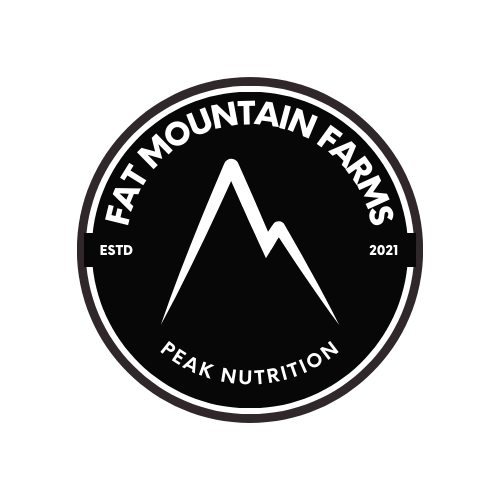At Fat Mountain Farms, we take immense pride in our commitment to regenerative farming practices and the sustainable production of high-quality, nutrient-dense food for our community.
Today, I want to shed light on a critical issue that affects not only us as regenerative farmers but also the future of our food system. It's a topic that requires our collective attention and action: the battle against corporate agriculture and its efforts to stifle the success of small, independent farms like ours.
In recent years, we've witnessed a growing trend of consolidation in the agricultural industry, with large corporations dominating various aspects of food production. This consolidation extends from seed and chemical companies to meat processing and distribution, giving them unprecedented control over our food supply chain. Here's why this matters to all of us:
-
Loss of Biodiversity: Corporate agriculture often relies on monoculture farming, which depletes soil health and reduces biodiversity. In contrast, regenerative farming practices, like the ones we employ, focus on building resilient ecosystems that support a diverse range of plants and animals.
-
Quality vs. Quantity: Big agriculture prioritizes quantity over quality, which can result in lower nutritional value and taste in the food we consume. We believe in nurturing our land and animals to provide you with the healthiest and tastiest products possible.
-
Environmental Impact: The practices of large-scale industrial agriculture can have detrimental effects on the environment, contributing to pollution, soil degradation, and excessive water usage. Our regenerative approach seeks to regenerate the land and reduce our ecological footprint.
-
Local Communities: Supporting small farms like ours means investing in local communities. We create jobs, promote sustainable land use, and keep dollars circulating within our neighborhoods, strengthening our local economies.
As we continue our mission to provide you with the best pasture-raised poultry, eggs, and grass-fed lamb, we face challenges from these corporate giants. They wield substantial influence in policy-making and regulations, which can be skewed against the interests of small, sustainable farms.
We believe in the power of informed consumers like you to make a difference. By choosing to support regenerative farming, you're not only enjoying delicious, nutrient-rich food but also standing up for a more resilient and sustainable food system.
Here's how you can help:
-
Spread the Word: Share our story and the importance of regenerative farming with your friends and family. Knowledge is the first step toward change.
-
Advocate for Small Farms: Stay informed about policies that impact small farmers and support initiatives that promote fair competition and sustainable practices.
-
Shop Local: Whenever possible, choose products from local, small-scale producers. Your purchases make a significant difference.
The consumer holds all the cards, even when it comes to large corporations. If the consumer continues to show support for the small, local farmer, even with pressure from big ag, their impact will slow and the small farmer will rise once again!

